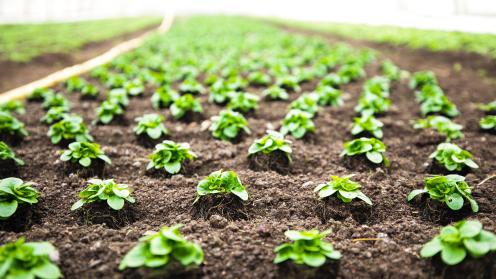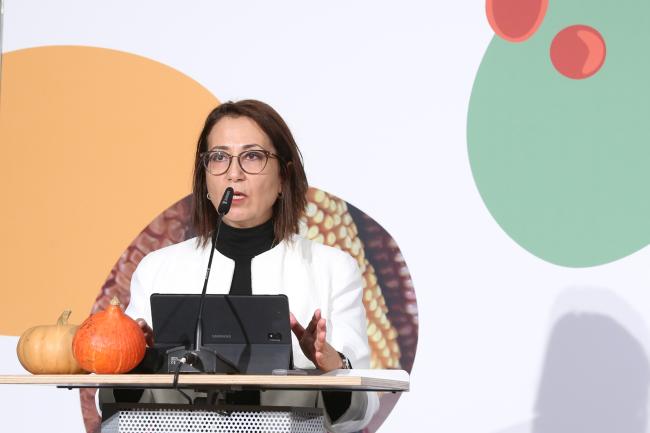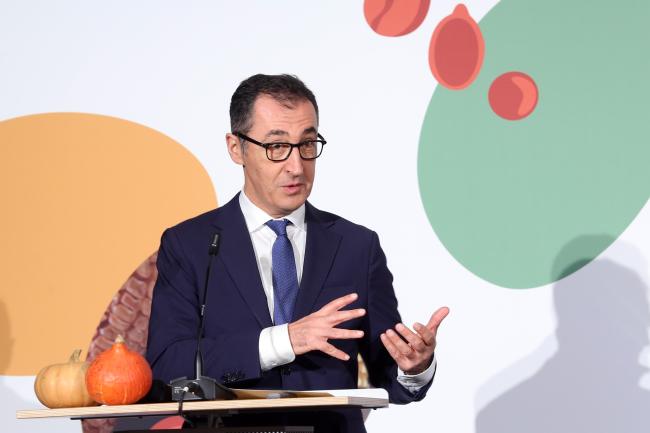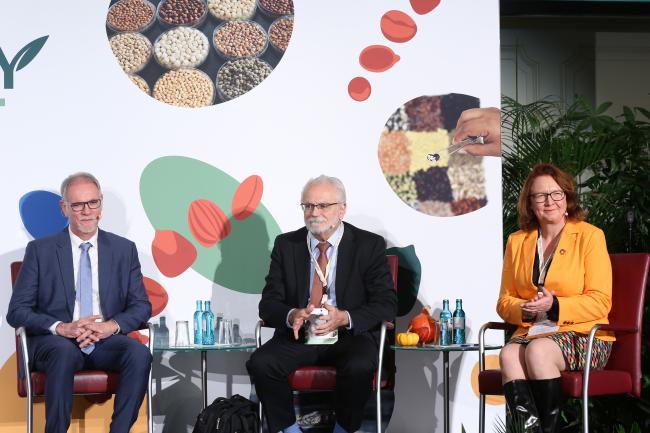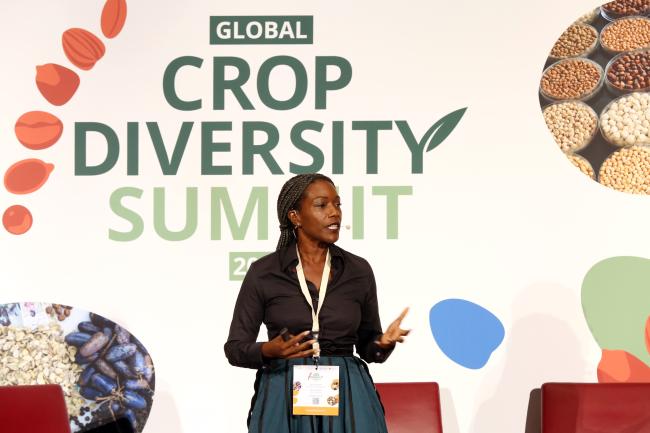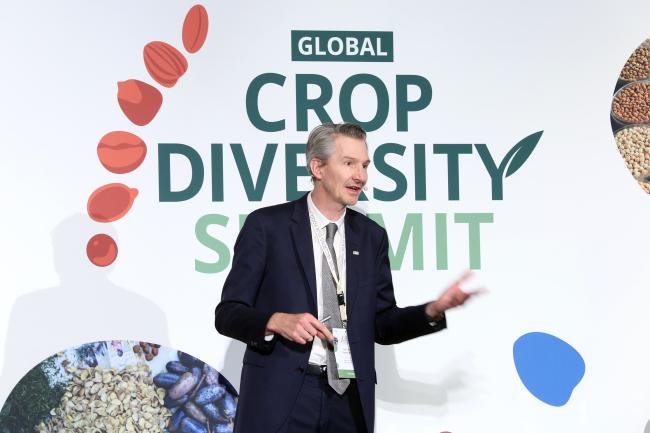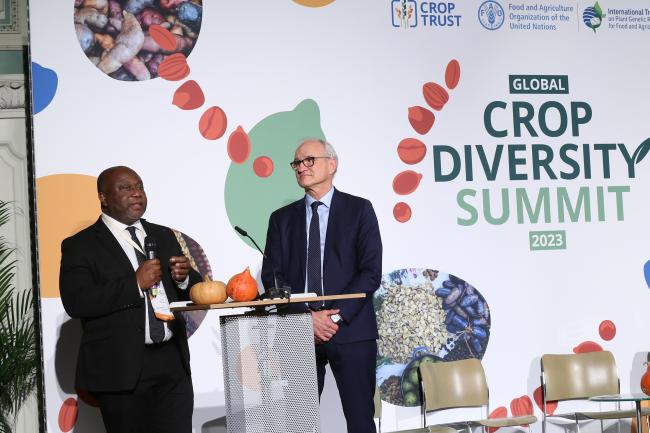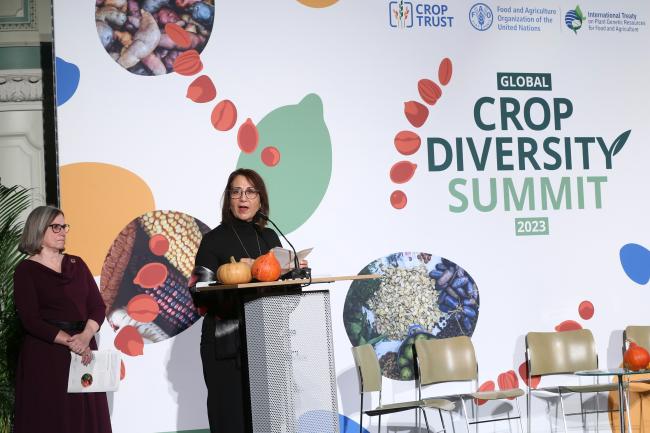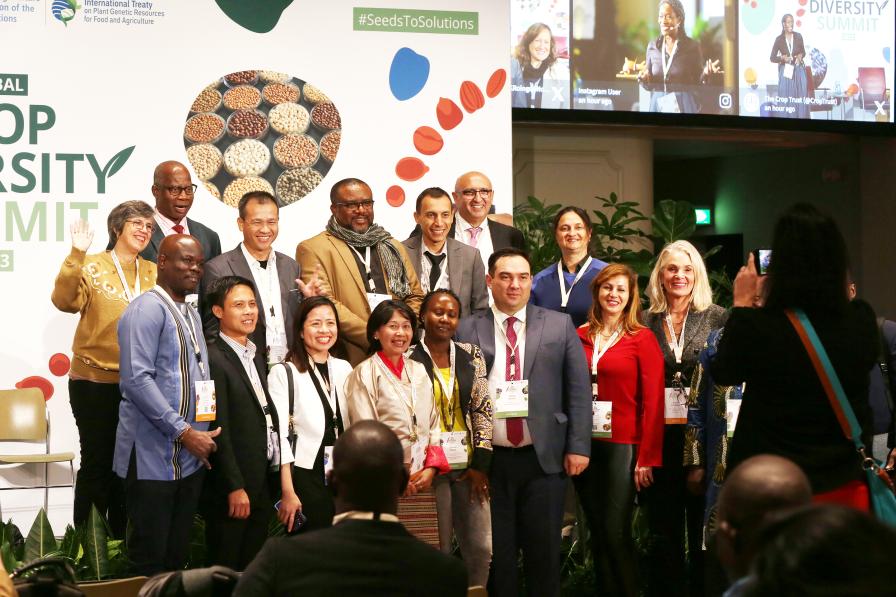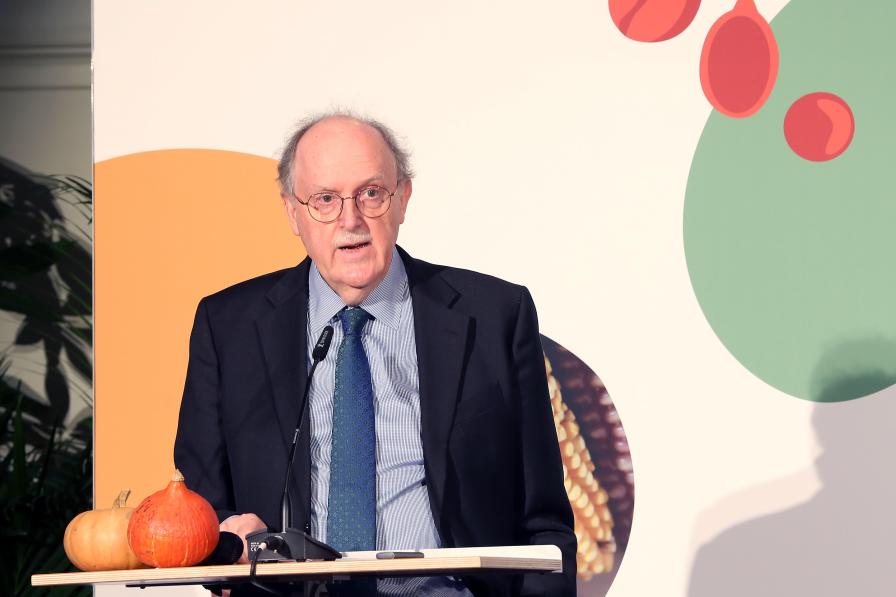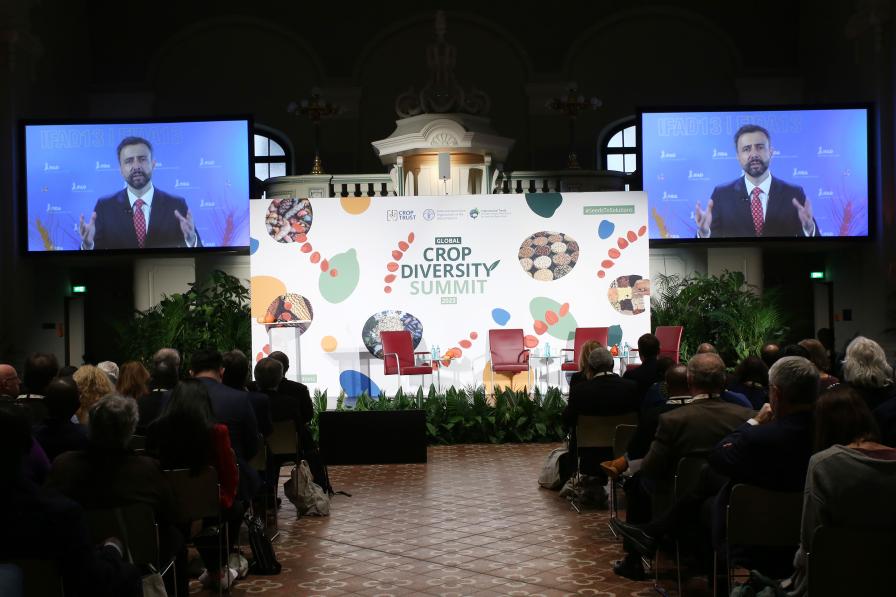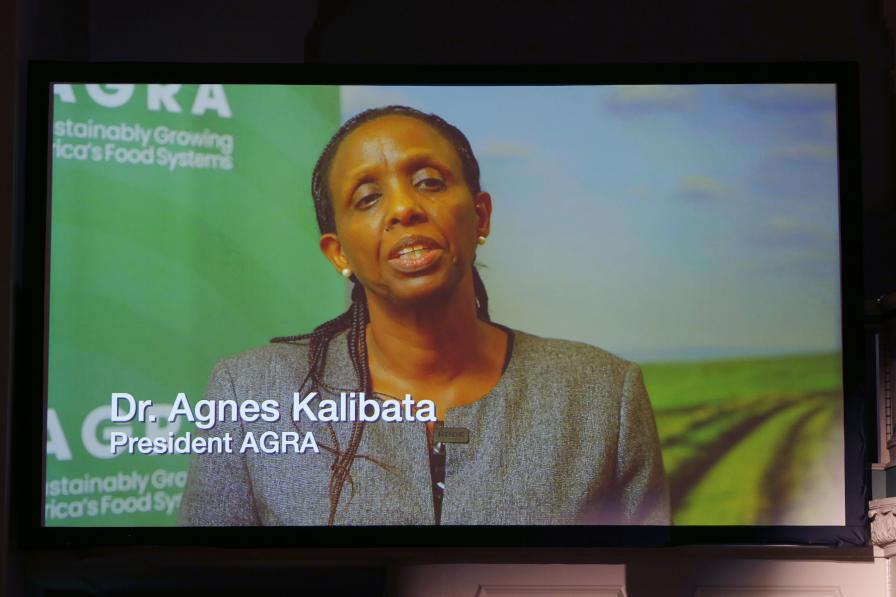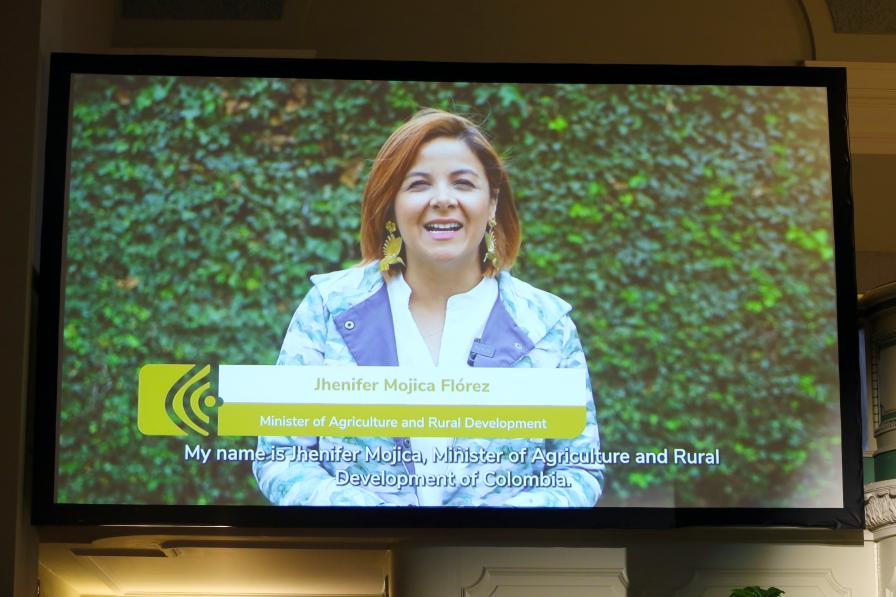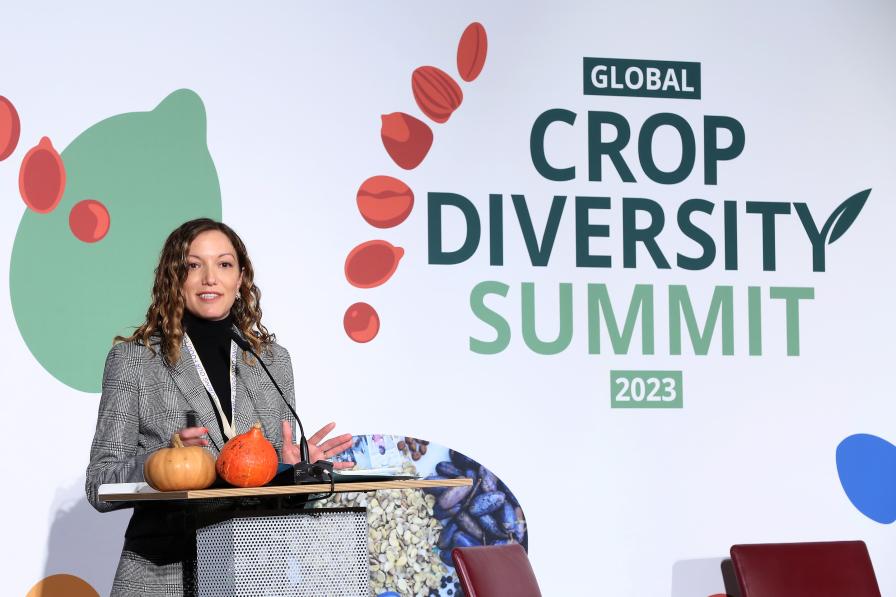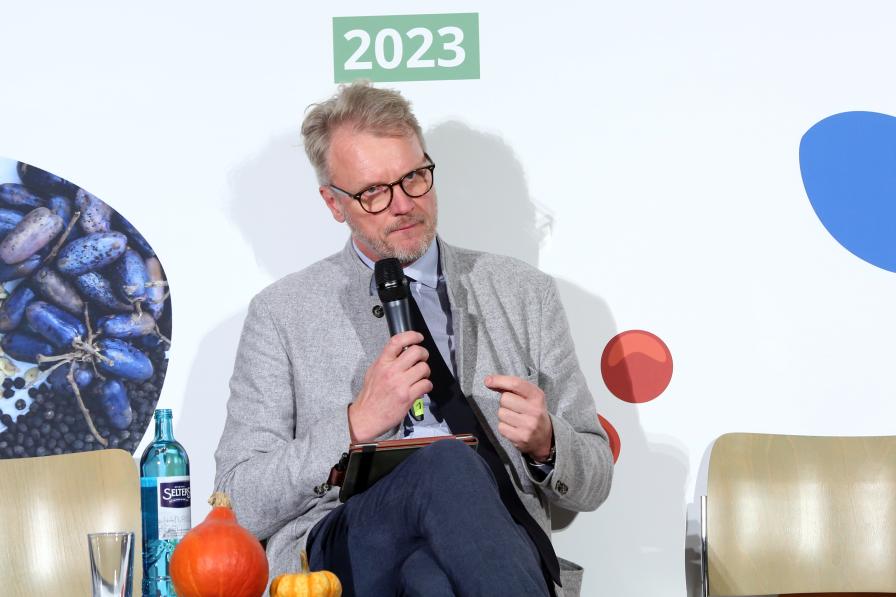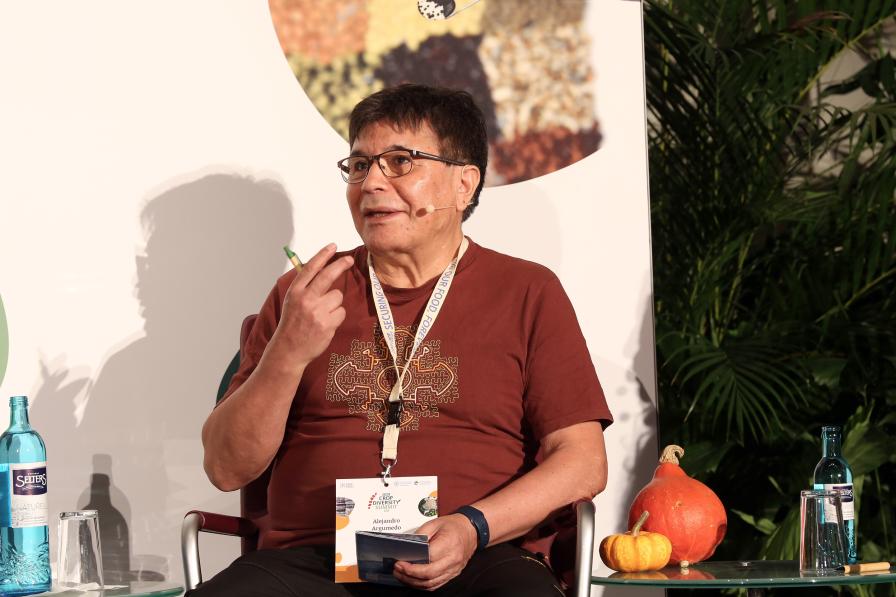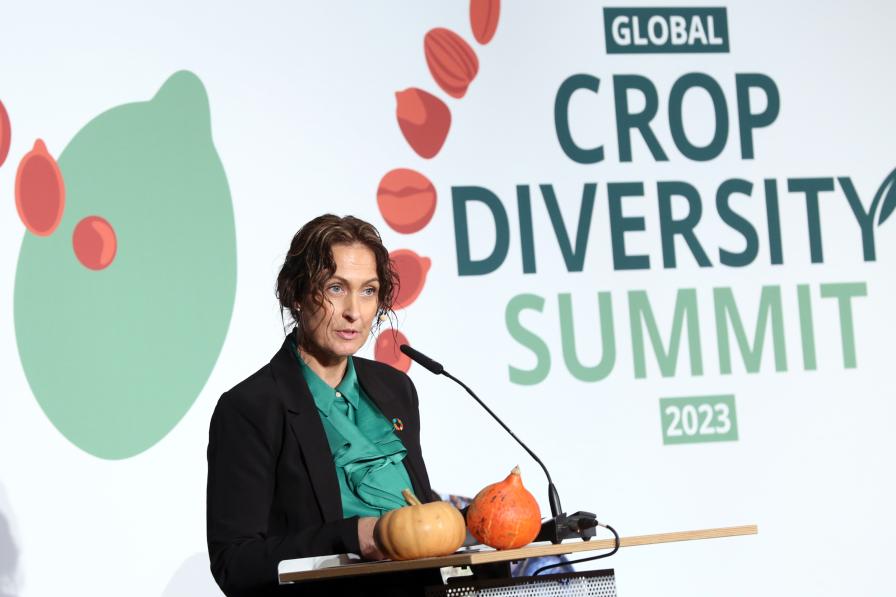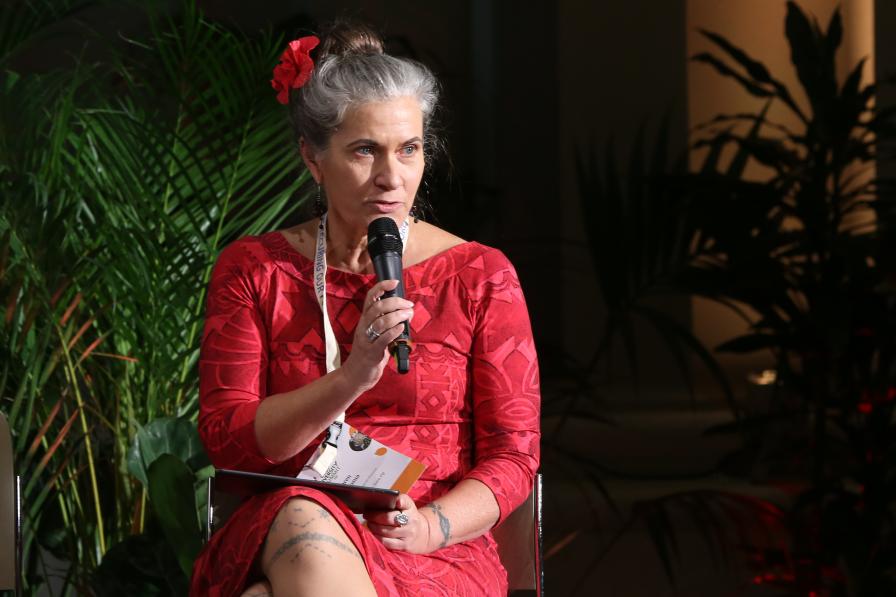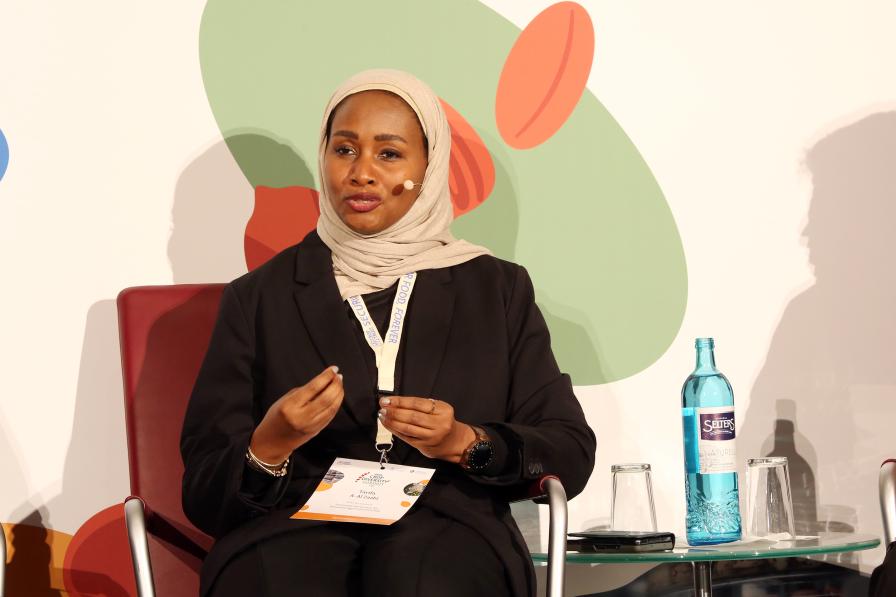Stakeholders from around the world gathered to reflect on the current state and future role of agrifood systems in the face interlinked global challenges such as the climate crisis, biodiversity loss, food insecurity, malnutrition, and conflicts. Discussions centered on the role of gene banks, including seed banks, in preserving and restoring crop diversity, with participants reflecting on pathways towards enhanced international cooperation for gene banks and their sustainable funding.
Opening the Summit, Yasmina El Bahloul, Chair, 10th meeting of the International Treaty on Plant Genetic Resources for Food and Agriculture (ITPGRFA) Governing Body (GB 10), drew attention to recent developments in the plant genetic resources world, such as the adoption of the Global Biodiversity Framework. She noted the Crop Diversity Summit is an opportunity to reflect on these developments and also pave the way for the upcoming GB 10.
Cem Özdemir, Federal Minister of Food and Agriculture, Germany, noted that the agriculture sector has become more dependent on pesticides, fertilizers, and irrigation, and underlined that a global food system that relies on a limited number of plants is at greater risk of falling victim to disease, pests, and climate extremes. He stressed that crop diversity is essential for sustainable agriculture; and urged actively keeping as many varieties in use as possible, with those not actively used to be secured in gene banks.
Panel discussions then focused on:
- interlinkages between people and planet, highlighting the rationale for a transformation towards more productive, sustainable, resilient, and healthy agri-food systems;
- the role of crop diversity in fostering a nutritious and resilient food future;
- how seed banks contribute to securing crop diversity; and
- concrete measures to support the work of seed banks and enhance their worldwide impact.
The discussions featured reflections from political decision makers, gene bank managers, scientists, entrepreneurs, and activists from around the world. Among others, João Campari, Global Leader, WWF Food Practice, pointed to the 2023 edition of the State of Food and Agriculture report, noting it offers a framework for assessing the hidden costs and benefits of agrifood systems. Looking towards the upcoming climate negotiations in Dubai, he urged addressing not only agriculture, but also dietary shifts, which hold the greatest potential for mitigating food systems’ greenhouse gas emissions, and the reduction of food loss and food waste.
Juan Lucas Restrepo, CGIAR, said that ex-situ and in-situ conservation need to go hand-in-hand, underscoring the repatriation of collections to benefit local communities. He underlined gene bank initiatives aimed at:
- enhanced resilience to pests, diseases, drought, and salinity;
- improved nutritional characteristics; and
- identifying anti-methanogenic feedstocks to reduce methane emissions from cattle.
In closing, Stefan Schmitz, Executive Director, Crop Trust, expressed his hope that the Summit managed to contribute to raising the political profile of plant genetic resources and will be the starting point for closer collaboration in the context of a global seed bank partnership.
Kent Nnadozie, Secretary, ITPGRFA, underscored that crop diversity is key for food systems’ resilience against shocks and urged adopting a systems approach that takes into account soil health and climate change. Echoing Schmitz, he said the Summit “planted the seed” towards enhanced cooperation in addressing current and future challenges, and recalled the importance of funding.
El Bahloul and Catherine Bertini, Executive Board Chair, Crop Trust, pointed to a communiqué capturing key messages from the Summit. They highlighted, among others: the vital role of gene banks and of strategic partnerships and division of labor among them; and the need to transform agrifood systems before climate tipping points are reached and some crops are lost forever. The communiqué will serve to inform discussions in multilateral fora such as the UN Framework Convention on Climate Change and ITPGRFA.
All ENB photos are free to use with attribution. For the Global Crop Diversity Summit 2023, please use: Photo by IISD/ENB | Franz Dejon.
Summit Snapshots
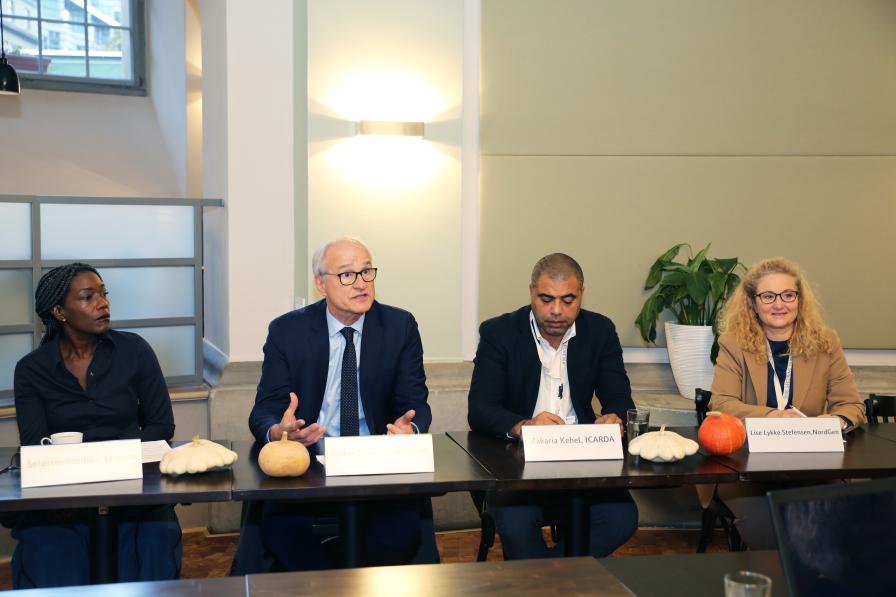
L-R: Press briefing by the Global Diversity Summit 2023 with Selassie Atadika, Founder, Midunu Institute Ghana; Stefan Schmitz, Executive Director, Crop Trust; Zakaria Kehel, The International Center for Agricultural Research in the Dry Areas (ICARDA); and Lise Lykke Steffensen, Director, Nordic Genetic Resource Center
